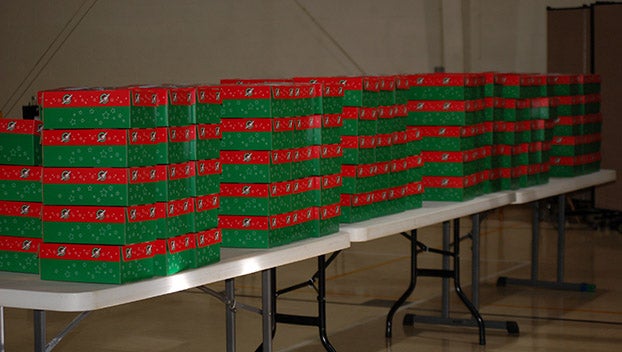‘He gave them hope’
Published 3:34 pm Tuesday, August 23, 2016

- VCU LIBRARIES FREEDOM NOW PROJECT In 1963, Goodwin Douglas, far right, organized and participated in protests against the school closings and segregation in downtown Farmville.
The Rev. Goodwin Douglas, a civil rights leader and former pastor of Beulah African Methodist Episcopal (AME) Church in Farmville, died Saturday in Columbia, Md., at the age of 78.
Douglas — then a young minister at Beulah AME — helped organize and participated in downtown Farmville protests in 1963 against the Prince Edward County Public School closings and segregation.
“Rev. Douglas is a true hero and an inspiration,” said Justin Reid, former Moton National Historic Landmark and Museum director of education and public programs, who now works for the Virginia Foundation for the Humanities (VFH) in Charlottesville. “As a young minister, he was an important link between the community’s older Civil Rights leaders, like (the) Rev. L. Francis Griffin, and the teenage activists fighting for reopened schools. Rev. Douglas was a trusted mentor to many students.”
According to Reid, Douglas co-organized the summer 1963 downtown Farmville student protests.
“Unlike other Southern communities, Prince Edward County remained peaceful, thanks in large part to Rev. Douglas’ leadership. The summer 1963 demonstrations ultimately helped force the Kennedy Administration to take action,” he said.
According to Encyclopedia Virginia, officials rejected a parade permit requested by Douglas on Saturday, Aug. 3, 1963. “Instead, the police roped off a one-block section of Main Street … and warned Griffin that any demonstrators who crossed the line would be arrested. Douglas considered this arrangement a violation of his constitutional rights … (and led) 10 teenagers past the barricade…,” the encyclopedia states.
“As a student at Kittrell College (in North Carolina) in the late 1950s, Douglas met and befriended many of the Prince Edward students who went to Kittrell to finish their high school education after schools here closed,” Moton officials said on social media.
Charlie Taylor — a rising senior and editor of Moton’s school paper when public schools closed — met Douglas while at Kittrell. Taylor currently serves on the Moton Museum Board and lives in Williamsburg.
Just before leaving his hospital bed shortly before Douglas died, Taylor said to him, “Roommate, I’ll see you on the other side.”
The two befriended each other and were roommates at Kittrell, where Taylor continued his education after the county schools closed. Douglas was there to finish his high school education as well, having moved from his home on Bermuda.
“Goody” — Taylor’s affectionate nickname for Douglas — referred to Taylor as “roommate” because of their time together.
“The two of us, in 1960, became … the boiler people for the girls dormitory in Kittrell,” Taylor said. “During that process, I talked to him about my life in Farmville and Prince Edward County … And, in the process, we talked about the differences.”
Douglas “couldn’t believe” Taylor’s stories about schools closings in Prince Edward.
“We became, as most people say, closer than brothers,” Taylor said. “I brought him to Prince Edward County … He came home with me (during Thanksgiving).”
While in Farmville, the two visited Beulah AME. “And two years later, he became the pastor of Beulah,” Taylor said.
Taylor, who served in Vietnam during the 1963 protests, said Douglas “was the one (who) Rev. Griffin depended on the most … Goody was a young, 21-year-old, 22-year-old (who) had more energy than you want to even think about and no fear. He feared nothing. We, in Farmville, feared going to jail.”
Taylor said the less Douglas feared people, the more people respected him.
“Goody was the one (who) had (protesters) out on the streets with the signs and then protesting and in front of the Safeway stores and Leggett’s and the Hub … He had all kinds of slogans.”
One of the most powerful impacts Douglas left, Taylor said, was his sense of awareness and change.
“Goody came in and changed some of the ideas … of where we were going to move and it was forward,” Taylor said. “So, he knew that we had to make some progress.”
Though he only served at the church for about two years, “the work he did, it seemed like (he was there) for about 20 years. He wasn’t there a long time, but if you’re doing some good, you don’t have to be in a place (for long).”
Taylor said Douglas’ lasting impact on Farmville is “if you want something bad enough, be willing to sacrifice. Be willing to even die for it …,” he said, adding that peaceful protest was another lasting impression.








